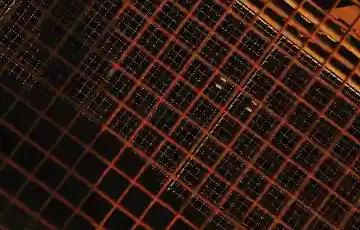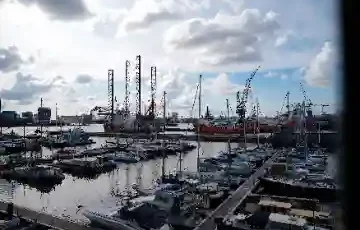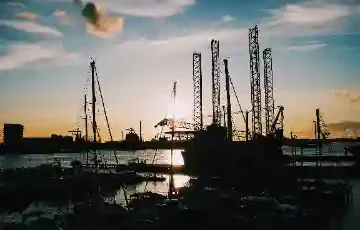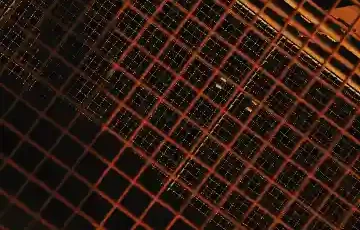During an NVWA inspection, you must grant access to your business premises, provide full cooperation to inspectors, and present all available administrative records. Refusal constitutes a separate violation resulting in fines up to €20,000 or criminal prosecution under Article 5:20 of the General Administrative Law Act.
The Netherlands Food and Consumer Product Safety Authority (NVWA) conducts thousands of inspections annually to verify compliance with food safety regulations, product safety standards, animal welfare requirements, and public health legislation. Inspectors typically arrive unannounced carrying official identification badges they must present upon request. Adequate preparation prevents legal complications and financial penalties that can reach thousands of euros per violation.
Business owners have specific rights and obligations during NVWA inspections. Legal assistance prevents costly errors when interacting with inspectors. The following sections clarify concrete actions, statutory obligations, and professional defense strategies under Dutch law.
How Does an NVWA Inspection Proceed in the Netherlands?
NVWA inspectors may enter your business premises without prior consent, review administrative records, and collect samples for laboratory testing. Inspections typically involve two inspectors who systematically verify compliance with food safety rules, hygiene requirements, and welfare standards according to Dutch legislation.
Inspectors begin their inspection by presenting official identification credentials. Always request this verification before granting access to your facilities. Subsequently, a systematic inspection examines various aspects: chemical composition of products, physical properties of packaging, labeling accuracy, and administrative documentation completeness.
For food businesses, inspectors specifically assess microbiological safety within production facilities. They evaluate temperature logs, cleaning protocols, and HACCP (Hazard Analysis Critical Control Points) procedures. In restaurants, they examine kitchen equipment, refrigeration units, and production logs for allergen information tracking.
During inspections, inspectors document findings through photographs and video recordings without requiring your explicit permission. These evidence materials support potential enforcement measures. You may also photograph or film the inspection, provided you do not obstruct inspectors and respect their privacy by anonymizing faces in recordings.
Inspectors pose questions regarding business processes and supplier relationships. For general information requests, you must provide answers. However, when questions concern your personal involvement in violations that could lead to criminal prosecution, you receive a formal caution first. This means you are not obligated to cooperate in producing incriminating evidence against yourself.
What Legal Obligations Apply to Business Owners Under Dutch Law?
Under Dutch law, business owners must provide immediate access to all business premises, present complete administrative records, and actively cooperate with inspection requests. Refusal constitutes an independent violation with sanctions up to €20,000 fine or criminal prosecution according to Article 5:20 of the General Administrative Law Act.
The cooperation obligation extends to all business premises excluding your private residence. Private homes receive heightened protection whereby inspectors normally require consent for entry. However, for inspections concerning animal welfare under the Animals Act or food safety under the Commodities Act, inspectors may enter without permission when business areas are accessible through residential spaces.
Inspectors can issue a formal order when you refuse cooperation. This official directive compels you to perform specific actions such as providing documents or granting access to secured areas. Non-compliance with a formal order produces three possible consequences:
- An administrative fine with rates according to the NVWA penalty policy
- A penalty payment whereby you pay daily amounts until compliance
- Criminal proceedings with possible imprisonment for repeat offenses
Your administrative obligations include maintaining product analyses such as certificates for chemical composition, microbiological tests, and traceability documentation. Inspectors may temporarily confiscate this administration or make copies. You then receive written proof of seizure specifying confiscated documents.
During transport inspections, inspectors may also examine vehicles and inspect cargo without prior consent. This applies to trucks, delivery vans, and even passenger cars used for business purposes.
What Are Effective Preparation Strategies Under Dutch Law?
Conduct monthly self-inspections following the same criteria as NVWA inspections, update product dossiers with recent laboratory analyses, and train staff in correct response techniques for inspection questions. Companies with proactive compliance register 60% fewer enforcement measures.
Effective preparation starts with thorough documentation of all business processes. Create an inspection folder containing essential documents: supplier declarations, product specifications, safety data sheets, and registration forms for plant protection products. This systematic organization saves time during inspections and demonstrates professional quality management.
Develop an internal inspection protocol instructing employees on correct behaviors during inspections. Designate one responsible person who receives and accompanies inspectors. This coordinator possesses complete knowledge of business locations, administrative systems, and contact details of legal advisors.
External expertise significantly strengthens your compliance position. Consultants with NVWA experience identify vulnerabilities before official inspectors discover them. They perform risk analyses for chemical contamination, assess labeling for legal accuracy, and evaluate HACCP systems against current legislation.
A practice example: An Amsterdam importer of organic food products received a blockade in 2023 for alleged MRL (Maximum Residue Level) exceedances in imported nuts. However, the business owner had conducted laboratory analyses beforehand and could immediately present documented evidence. The blockade was lifted within 48 hours because proactive documentation eliminated the legal basis for enforcement.
Additionally, invest in continuous training for production and logistics staff. Employees must execute hygiene protocols flawlessly, maintain temperature registrations correctly, and communicate allergen information accurately. This operational discipline prevents most violations that inspectors identify during inspections.
Do you have questions about your position during an NVWA inspection? Lawyers with specialized NVWA expertise analyze your situation and advise on effective defense against unjustified enforcement measures. Proactive legal advice prevents costly fines and prolonged business blockades.
How Do You Respond Legally Correct During Inspections in the Netherlands?
Remain courteous yet reserved with spontaneous statements, document all inspector actions and remarks, and record times plus present persons. Request inspectors formulate written questions so you can respond completely and accurately after obtaining legal advice.
When inspectors pose questions about business processes, provide factual answers without interpretations or speculation. For example: confirm you have three suppliers without immediately discussing contract terms or pricing agreements. This restraint prevents incomplete information from later functioning as contradictory evidence.
Verbal statements during inspections are frequently misinterpreted in official reports. Inspectors sometimes record summaries that deviate from your original explanation. Therefore: request inspectors send questions via email. This provides opportunity to obtain legal advice and supply carefully formulated responses.
Inspectors may not arbitrarily question all employees. They must direct questions to the most appropriate person for specific subjects: the director for strategic decisions, the production manager for operational processes, the administrator for financial data. Politely indicate this proportionality when inspectors begin questioning assistants or interns.
Consult a specialized lawyer immediately when inspectors identify violations. Legal assistance during inspections provides crucial counterbalance against the powerful governmental apparatus. A lawyer assesses whether inspectors operate within their authority, whether procedures are correctly followed, and which defense strategy is optimal.
What Sanctions Follow Identified Violations Under Dutch Law?
NVWA inspectors can apply four interventions: compliance assistance with improvement advice, official warning without financial consequences, administrative fine up to €450,000 according to NVWA penalty policy, or criminal proceedings with possible imprisonment. These measures are often combined for serious violations.
Compliance assistance consists of concrete advice for process improvements. Inspectors provide instructions, for example, on correct temperature registration or adequate cleaning frequencies. This assistance prevents escalation to formal sanctions when you immediately resolve problems. However, during re-inspections you must demonstrate that violations have been remedied. Persistent deficiencies lead to increased fines.
An official warning is confirmed in writing and registered in your business file. This warning has no direct financial consequences but aggravates sanctions for future violations. You cannot object to warnings because they do not constitute a legally binding decision.
Administrative fines vary considerably per violation: incorrect labeling yields €1,500, insufficient hygiene €6,000, marketing dangerous products up to €45,000. For repeat offenses within two years, the NVWA increases fine amounts by 50%. The penalty decree specifies exact rates per violation with aggravating or mitigating circumstances.
Measures include operational restrictions such as product blockades, business closures, or export bans. A blockade means specific product batches may not be sold until laboratory analyses confirm safety. For animal welfare violations, the NVWA can seize animals and house them elsewhere, with ongoing costs charged to you.
Criminal prosecution via official report occurs for serious violations such as deliberate falsification of product information or systematic food safety violations with health risks. The Public Prosecution Service decides on prosecution with possible penalties up to €82,000 fine or imprisonment for intentional offenses.
How Do You Appeal NVWA Decisions in the Netherlands?
Submit a written response within six weeks against proposed fine or measure via NVWA Legal Affairs Division, followed by objection against final decision and appeal to district court within another six weeks. Process statistics show that 30% of objections lead to reduction or annulment of sanctions.
The response procedure offers your first defense opportunity. After inspection you receive a findings report with identified violations and proposed sanctions. You then receive opportunity to respond in writing before the NVWA makes a final decision. This response must contain concrete legal arguments: dispute of facts, procedural defects, or disproportionate sanctions.
For example: when inspectors identify temperature exceedances but your continuous registration system shows that cooling failed for only 15 minutes due to power outage, argue that risks were negligible. Support with technical reports and supplier declarations about product durability.
Filing objection against final decisions activates thorough reassessment by an independent objections committee within the NVWA. This committee hears you personally and assesses both legal basis and proportionality of sanctions. On average, objection processing takes three to six months.
Upon objection rejection, appeal proceedings commence at the district court in your jurisdiction. District courts examine NVWA decisions comprehensively for legality and diligence. Successful appeals often rely on procedural defects: insufficient reasoning, absent weighing of interests, or incorrect application of legislation.
Urgent situations such as acute business blockades require preliminary relief proceedings before the preliminary relief judge. This procedure takes several weeks and suspends enforcement measures until final judgment. Preliminary relief succeeds when you demonstrate that irreparable damage threatens and serious doubt exists about the legality of the NVWA decision.
Contact specialized lawyers for strategic case management in NVWA disputes. Legal expertise significantly increases success rates because technical argumentation and procedural precision are essential for successful defense.
What Are Common Legal Pitfalls in Dutch Law?
Business owners frequently make three critical errors: providing spontaneously extensive statements without legal advice, presenting incomplete administration from fear of further complications, and accepting unjustified sanctions without professional assessment of defense possibilities.
The first pitfall occurs when nervousness leads to excessive communication. Inspectors pose seemingly informal questions but document all answers in official reports. A business owner who states “sometimes we forget to record temperatures” creates evidence for systematic violations, even when incidents were exceptional.
Presenting incomplete administration appears risk-limiting but proves counterproductive. Inspectors interpret gaps as deliberately concealing violations and intensify their investigation. Transparency with complete documentation, including reports showing imperfections, demonstrates reliability and diligence. This mitigates sanctions because it confirms good intentions.
Many business owners accept fines without legal review because they believe procedures are expensive and unlikely to succeed. Statistics show, however, that 30% of objections succeed and that procedural costs often fall below imposed fines. Moreover, successful defense prevents future aggravated sanctions during potential new inspections.
An Amsterdam hospitality business received a fine of €8,000 for alleged hygiene deficiencies. The lawyer analyzed the inspection report and discovered that inspectors had assessed certain spaces that factually contained no food preparation. Objection led to complete annulment of the fine because factual basis was absent.
Business owners also underestimate the publication consequences of NVWA inspection results. The NVWA regularly publishes inspection data including business names on their website. This damages reputations and customer relationships considerably. Filing response against publication prevents or limits this image damage when you demonstrate that information is incorrect or privacy is disproportionately violated.
How Do You Prevent Future NVWA Problems in the Netherlands?
Implement permanent compliance systems with quarterly internal audits, automated temperature monitoring with digital logging, and continuous legal updates on changing regulations. Companies with structured compliance report 75% fewer inspection complications.
Invest in professional quality management systems that automatically comply with NVWA requirements. Software solutions register production data, monitor critical control points, and generate compliance reports. These systems eliminate human errors in administration and create watertight evidence for compliance.
Maintain proactive relationships with certifying bodies such as Skal for organic products. Regular consultation on regulatory interpretation prevents surprises during official inspections. Certifiers identify potential problems before enforcement authorities discover them.
Legal monitoring of new legislation remains essential. European regulations for food safety and labeling change frequently with implementation deadlines sometimes spanning only months. Subscribe to specialized legal newsletters and consult regularly with lawyers who follow NVWA developments.
Engage external consultants for periodic process assessments. These objective analyses identify weak points that internal teams overlook due to operational blindness. Consultants with NVWA background specifically recognize which aspects inspectors prioritize during inspections.
Contact legal specialists today for a non-binding analysis of your compliance position and strategic advice on effective NVWA procedures. Preventive legal assistance saves considerably more costs than reactive defense after imposed sanctions.









